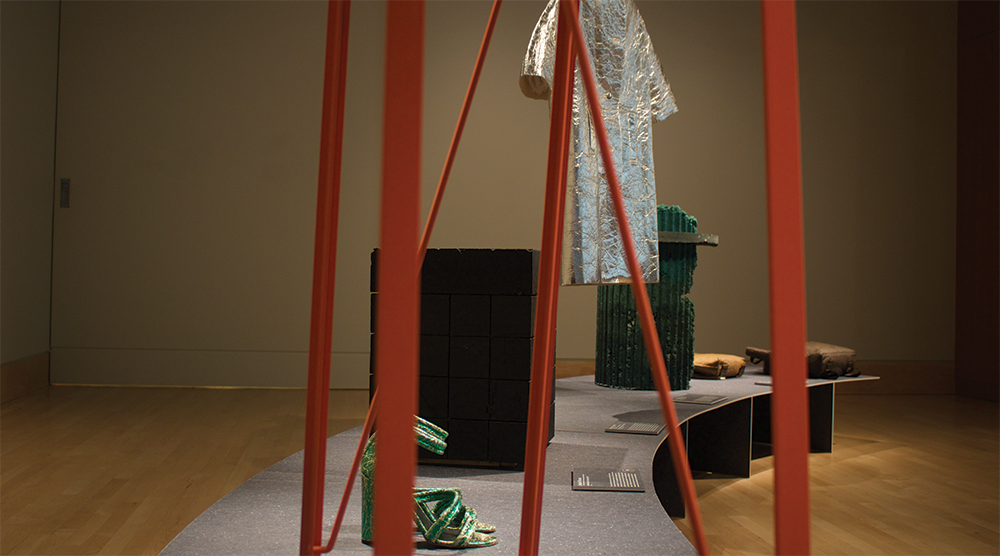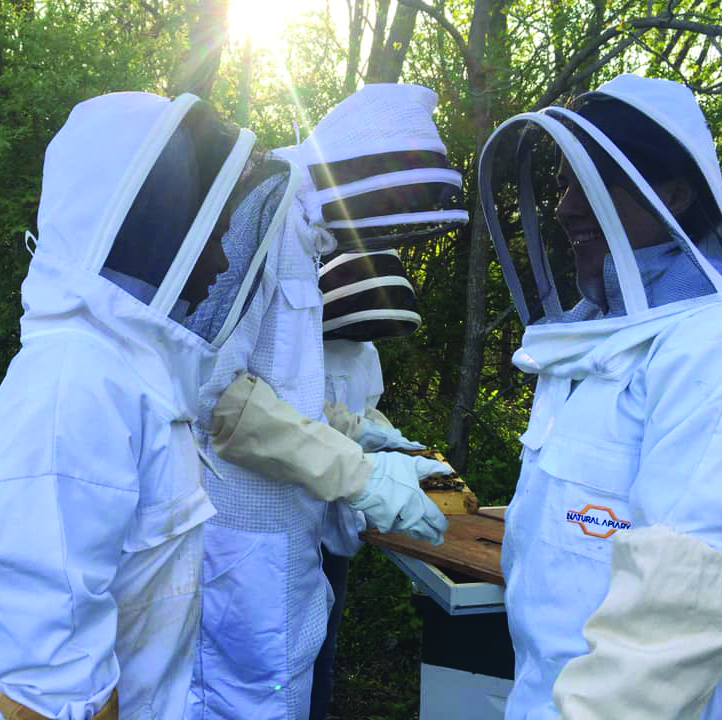Every semester, students spend the days before registration fiddling with new course catalogs and scheduling apps to create their ideal list of classes for the next term. Fulfilling the core requirements often presents an obstacle in that scheduling process — a forgotten science or humanities requirement can shatter an otherwise perfect schedule.
Over the past three years, Georgetown University’s Designing the Future(s) Initiative has been sponsoring a new method for completing the core requirements: the Core Pathway. Currently, two different pathways exist, allowing students to take core-fulfilling courses focused on either climate change or technology, according to the program’s website.
The topic of climate change fits the Core Pathways model so well because of how climate change has the potential to affect almost every aspect of human life, according to Randall Amster, climate change Core Pathway faculty coordinator.
“Climate is a paradigmatic issue, it’s a generational question, it may even be an existential one,” Amster said in an interview with The Hoya. “By its very nature it impacts all of these different disciplines.”
Approaching the issue of climate change from multiple disciplines allows for more creative and innovative solutions, according to Dagomar Degroot, a history professor who teaches two of the Core Pathway courses.
“When we combine all of that information — science, social sciences, humanities and people who work in these different disciplines — we end up getting really interesting answers to questions that seemed like they already had answers, or we start to think of different topics that we couldn’t approach from just one discipline,” Degroot said in an interview with The Hoya.
The Core Pathways program allows students to identify other methods of combating climate change beyond involvement in environmentally focused groups, according to Degroot.

Degroot’s courses focus on the impact of climate change on different societies globally, allowing students to consider the societal effects of climate change while exploring the sustainability practices of a wide variety of communities.
“If you work for social justice, for example, even if you do your job with a sense of what’s just, what’s moral, then I think you are fighting climate change, because climate change is a massive social justice issue,” Degroot said. “There’s all kinds of work that students can do that does not have to be strictly focused on environmental issues for them to be fighting climate change.”
The focus on climate change in core coursework could have a larger impact on students’ involvement with sustainability issues on campus, but sometimes experience in activism leads students to the classroom.
Students can complete the coursework and capture more direct engagement with their campus and community affiliations, or sometimes people already have that engagement and offer the Pathway offers places to anchor that coursework.
Students like Chelsea Hafer (COL ’22) originally joined the program because of her interest in learning about climate change and sustainability.
(Full disclosure: Hafer formerly served as a staff writer for The Hoya.)
The program incorporates integrative days where all Pathways students collaborate on projects, adding a unique, hands-on experience to a model that is particularly productive in increasing student involvement in sustainability efforts on campus.
These interactive days bring Core Pathways students to the forefront of both on-campus sustainability and the program itself, according to Hafer.
“A lot of the projects that we were working on last year were suggested by Core Pathways students the year before,” Hafer said in an interview with The Hoya. “This is an opportunity to hear what students want done sustainability-wise.”
The combination of interdisciplinary exploration and broader student engagement sets the program apart from other curriculum on campus, positioning Georgetown on the cutting edge, according to Degroot.
“I think we’re setting the standard for other universities and how they tackle this topic,” Degroot said.
Georgetown’s own campus culture, which emphasizes altruistic ideas, helps the program fit into the broader discourse around climate change and social justice, according to Degroot.
“I think [Pathways] is part of what Georgetown does at its best — emphasizing that scholarship should actually mean something for the broader world, and that we should try and serve the broader world,” Degroot said.

















Sibel Galindez • Nov 9, 2019 at 8:41 am
How wonderful to know about this way of thinking happening at Georgetown! We are all counting on and supporting the incredible vision and voice of this generation to tackle the climate crisis! Thank you, Elena Ergener, for shedding light on this important subject matter!
Suzan Atillasoy • Nov 8, 2019 at 3:33 pm
Elena,
How eloquently you write about such an important issue today. I know the future leaders from Georgetown and their Professors will sure help solve this existential crises. Thank you !